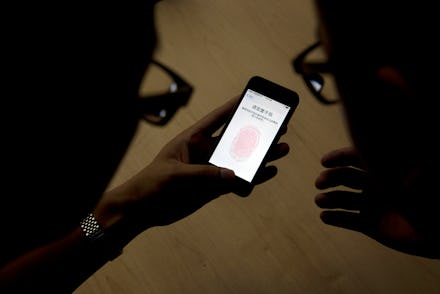New Apple iPad Air: Think Twice Before Buying One, If You Care About an Open Internet

We all know the internet is heavily censored in China, and some American companies have been complicit in the Chinese government's crackdown on online dissent. For example, Yahoo handed over to the authorities emails sent by Chinese journalist Shi Tao, leading to his arrest and imprisonment for a memo he submitted to a human rights forum. And Cisco provided equipment for China's Golden Shield censorship program. Even Google, the company known for its motto "Do No Evil," once purged Chinese search results of any information unfavorable to the government. But less known is that the beloved Apple, producer of the omnipresent iPhone, iPad, and MacBook, is also an egregious offender in assisting the regime in China with its suppression of information and expression. Worse, Apple is actively taking steps to deter Chinese netizens from accessing information the government doesn't want them to see. Techies have been buzzing ahead of the release of Apple's slim new iPad this Friday, but you should think twice before picking one up if you care about digital rights.
Internet activist John Gilmore aptly said, "the net interprets censorship as damage and routes around it." No matter how hard the Communist state tries, it is never able to always keep its online population on a leash or to put a tight lid on information it wants to hide, whether it's the truth about the Tiananmen Square massacre, advocacy for liberal democracy, or exposure of the regime's brutal crackdown on Falun Gong, a banned spiritual practice.
Freegate is a computer program developed by Falun Gong's supporters that is used by Chinese and Iranian citizens to access content blocked by their respective governments. Naturally, as more and more people started to use their smartphones and tablets to do what they used to do with computers, developers created smartphone apps for the same purpose. OpenDoor is one of these apps. It's incredibly popular in China; one-third of OpenDoor's downloads came from people in China. iPhones users were able to find OpenDoor on Apple's app store.
Until July 11 of this year, that is.
That day, Apple pulled OpenDoor from its app store in China without explanation, though the app remains available in other countries. The makers of OpenDoor only found out when irate users saw the app missing from the store and downloads precipitously fell from 2,000 a day to zero.
This is not the first time Apple has deleted apps deemed damaging to the Chinese government's authority. In 2009, the company took away several apps that featured content associated with the Dalai Lama, the exiled religious leader of Tibet, and Rebiya Kadeer, a Uyghur activist. One app removed simply listed Nobel Prize laureates, one of which was the Dalai Lama. Apps that offered ebooks of banned texts and broadcast NTDTV, an overseas Chinese dissident television network, were also pulled from the shelves of the app store.
Apple did not reply to press inquiries regarding its removal of OpenDoor, but responded to the app's developers in late August, curtly stating the app violated local laws. Apple gave similar justifications regarding previous app removals. Nevertheless, obeying the law is not a valid excuse for aiding an authoritarian regime known for human rights abuses and limiting its citizens access to information. An internet expert lamented, "The censorship of Apple has reached a whole new level" with the OpenDoor incident. Indeed, when Chinese netizens find cracks in the firewall, Apple pours cement on them.
Millennial consumers are known for placing a great emphasis on the ethical standards of the companies from which they purchase products. Knowing that Apple not only employs sweatshop labor in China, but also helps the Chinese government censor the internet, we should think twice before embracing Apple and all the glamor of its brand and gadgets.